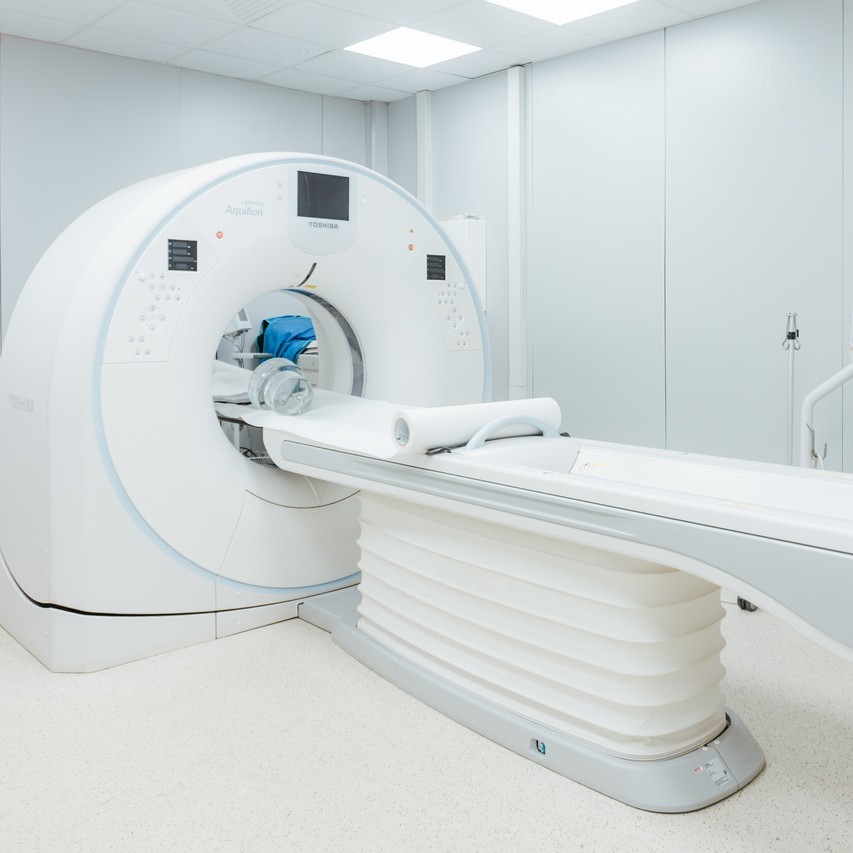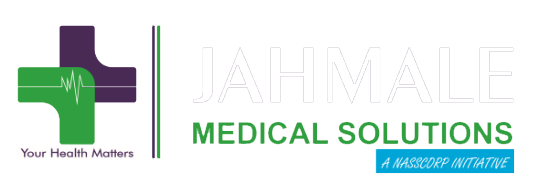
CT Scan
What is a CT?
Computed tomography (CT) scan is a useful diagnostic tool for detecting diseases and injuries. It uses a series of X-rays and a computer to produce a 3D image of soft tissues and bones. CT is a painless, non-invasive way for your healthcare provider to diagnose conditions. You may have a CT scan at a hospital or imaging center.
What is a CT scan with contrast?
Sometimes, your scan uses a contrast agent. This contrast agent, sometimes called a dye, improves the images by highlighting certain features. Your healthcare provider will either have you drink a special liquid containing the dye or give you an IV injection with the contrast or both depending on the type of CT scan, the reason for the scan, and your medical history. The dye is cleared from your body through your urine, first rapidly then more slowly over the next 24 hours.
How do I prepare for a CT scan?
Your healthcare provider may give you instructions on how to prepare for your CT scan. On the day of the exam your healthcare provider may or may not ask you to pay attention to the following:
Arrival: You should plan to arrive early, depending on your healthcare provider’s instructions. Arriving early helps the testing stay on schedule.
Diet: Avoid eating and drinking for four hours before your exam.
Medications: Ask your healthcare provider if you should take your regular medicines before the CT scan.
Comfort: You should wear comfortable clothes. You may need to change into a gown before the exam and remove your watch and jewelry, including any piercings you can remove. You may need to remove dentures and hearing aids, too. Zippers and metal objects can obstruct the scan.
If your CT scan uses dye or contrast, your provider may give you some specific preparation guidelines that could include:
Blood test: You may need a blood test before your scheduled CT scan. The blood test will make sure that your kidney functions are good.
Dietary restrictions: You will need to watch what you eat and drink for the four hours before your CT scan. Consuming only clear liquids helps prevent nausea when you receive the contrast dye. You can generally have broth, tea or black coffee, strained fruit juices, plain gelatin and soft drinks, like ginger ale.
Allergy medication: If you are allergic to the contrast agent used for CT (which contains iodine), you may need to take a steroid medication the night before and morning of your procedure along with an antihistamine, such as Benadryl, before the exam. Be sure to check with your healthcare provider and have them order these medications for you if needed. Contrast agents for MRI and CT are different; being allergic to one doesn’t mean you are allergic to the other.
Preparation solution: You should drink the oral contrast solution as instructed by your technologist or nurse.
What to expect?
Upon arriving at Jahmale, you will be greeted by our friendly and knowledgeable staff that will register and help you get ready for your exam. Our dedicated CT Scan Technologist will walk you through the exam, answer any questions you may have and ask you to sign a consent form.
You will be required to change into a hospital gown and remove all objects that are not permitted in the CT room. This includes all removable metallic, magnetic, electronic and mechanical implants, devices or objects. Your items will be securely locked for the duration of your exam. You should inform your doctor and the technologist if you have any non-removable implants, devices or objects. At Jahmale, we encourage you to be an ambassador of your own health, feel free to ask questions or seek clarity whenever you require it. Your exam may take between 15 to 30 minutes; however, preparation may take longer.
During the scan, you will lie on your back on a table (like a bed). The bed slowly moves into the doughnut-shaped scanner. At this point, you will need to stay as still as possible because movement can create blurry images. The scanner takes pictures of the area the healthcare provider needs to see.
When the exam is over, the table moves back out of the scanner.
If your scan requires a contrast dye, a health care provider may inject the contrast dye intravenously (into your vein). This dye can make you feel flushed or have a metallic taste in your mouth. The dye is cleared from your body through your urine, first rapidly then more slowly over the next 24 hours.
How long does the test take?
Typically, you should plan for an hour or two for a CT scan. Most of that time is for preparation. The scan itself takes between 10 and 30 minutes or less. Generally, you can resume your activities after a healthcare provider says it is safe to do so — usually after they complete the scan and verify clear images.
When will I receive my results?
If you have had a CT scan for the same body part done at a different facility, please bring or have the images sent to Jahmale Medical Solutions, ideally prior to your appointment. This allows the radiologist a comparison of former studies to current.
The Radiologist (a doctor with special training) will review your exam in a detailed manner and prepare a report that explains them. You will usually get the radiologist report within 24 to 48 hours. However, film or a compact disc (CD) of your images may be given to you after the exam.
Once a radiologist and your healthcare provider have reviewed the results, you will either receive a call or be scheduled for another appointment. Your healthcare provider will discuss the results with you.
In an emergency setting, healthcare providers often receive results less than 24-hours.






